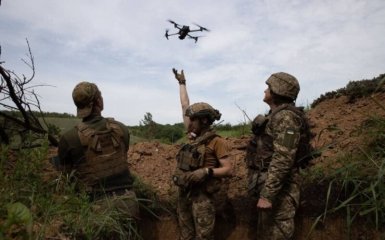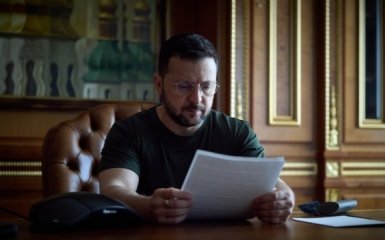During the last almost three years, there have been significant technological changes at the front. Because of this, drones on the front are more effective than classical weapons.
Points of attention
- Drones have become more reliable and effective frontline tools due to technological shifts and the development of machine vision.
- Priority directions for the Armed Forces and weapons manufacturers are currently aimed at improving unmanned systems for effective operation at strategic depth.
- Ukrainian drones have demonstrated high efficiency, the ability to be used expediently in military logistics and to strike the enemy's critical infrastructure.
- With the help of drones, the Ukrainian military carried out successful operations, provoking the Kremlin to withdraw its forces from the district of temporarily occupied Sevastopol.
The Armed Forces need more drones at the front
As reported by the Deputy Commander-in-Chief of the Armed Forces of Ukraine, Colonel Andriy Lebedenko, significant technological changes have taken place at the front during the last almost three years.
Therefore, the Armed Forces need constant improvement of unmanned systems — machine vision, elements of artificial intelligence, swarms of drones and modern EW tools.
The commander of the Unmanned Systems Forces, Colonel Vadym Sukharevskyi, emphasized that drones work both in the sky and in water and on land.
He added that the Armed Forces have extensive experience in working with drones in the air, which operate at a tactical depth (up to 20 km). Ukraine currently has more than 165 air assets alone.
We are currently communicating with manufacturers, determining directions for improving this depth. And we call on manufacturers to join us, visit our test sites and together improve the weapons and equipment necessary for the Armed Forces of Ukraine, — said Sukharevskyi.
According to Deputy Chief of Staff of the Armed Forces Lebedenko, unmanned systems on the battlefield are already more effective than conventional weapons, including artillery.
That is why priority directions for the Armed Forces and weapons manufacturers are also technological. These are interceptors, artillery fire adjustment systems, counter-battery combat, unmanned systems capable of working effectively at operational (up to 100 km) and strategic depths (over 100 km).
Ukrainian drones targeted about 200 objects on the territory of the Russian Federation
The Commander-in-Chief of the Ukrainian Armed Forces Oleksandr Syrskyi reported that the Ukrainian military, thanks to the long-range kamikaze drones, targeted about 200 objects of critical infrastructure and the territory of the Russian Federation.
Syrsky noted that all these objects were related to "military logistics" and included factories, fuel depots and ammunition depots.
Syrsky reminded that naval drones sank about a third of the Black Sea Fleet of the Russian Federation.
It really became a trap for them and a grave for some [ships],” said the commander-in-chief.
He also added that the Kremlin was forced to "completely withdraw its forces" from the port of temporarily occupied Sevastopol after a series of Ukrainian attacks.








